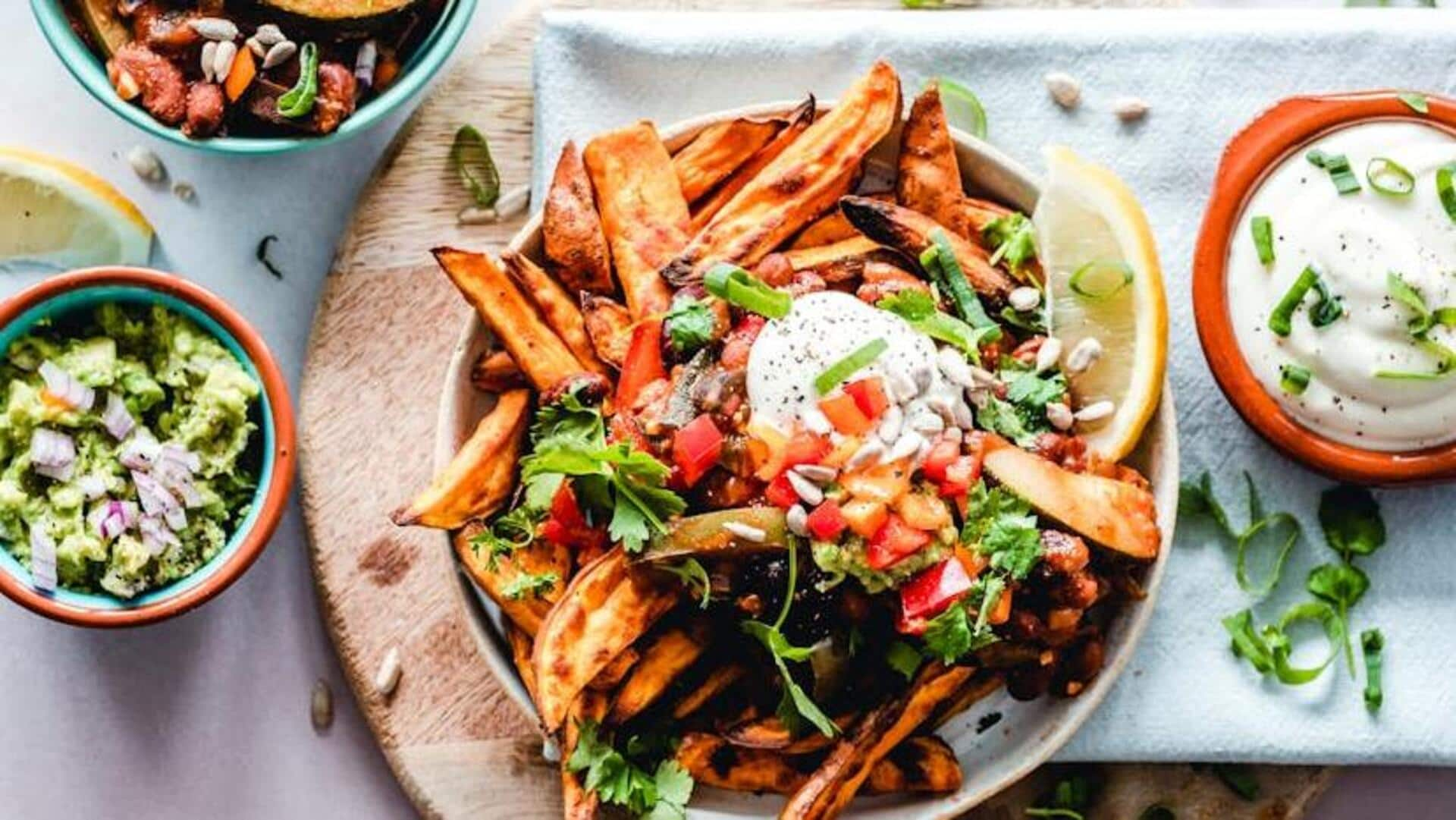
Vegan intermittent fasting: Breakfast, lunch, snacks, and dinner options
What's the story
Intermittent fasting combined with a vegan diet can be a powerful approach to health and wellness.
This method involves cycling between periods of eating and fasting, focusing solely on plant-based foods during the eating windows.
It's not just about what you eat but also when you eat, making it a unique lifestyle choice that supports weight management, improves digestion, and enhances overall health.
Morning meal
Nutrient-dense breakfast ideas
Starting your day right is crucial, especially when your eating window is limited.
A nutrient-dense breakfast might include chia pudding topped with mixed berries and a sprinkle of nuts.
Chia seeds are high in omega-3 fatty acids, fiber, and protein, making them an excellent choice for vegans.
Berries add natural sweetness and are loaded with antioxidants, while nuts provide healthy fats and additional protein.
Midday fuel
Energizing lunch options
For lunch, consider a quinoa salad packed with colorful vegetables like bell peppers, cucumbers, tomatoes and spinach.
Quinoa is a complete protein source for vegans and is rich in fiber and minerals.
The vegetables contribute vitamins and minerals to keep your energy levels up throughout the day.
Dressing this salad with lemon juice and olive oil adds healthy fats and makes it more satisfying.
Evening feast
Satisfying dinner dishes
A hearty lentil stew can be your dinner highlight.
Lentils, rich in plant-based protein and fiber, help you feel full longer. Adding vegetables like carrots, celery, and kale enriches its nutrients.
Spices such as cumin and turmeric not only enhance flavor but also have anti-inflammatory benefits.
This stew is a satisfying choice for your eating window, supporting prolonged fullness into your fasting period.
Snack wisely
Smart snacking strategies
Smart snacking is key in vegan intermittent fasting.
Choose whole foods like apples with almond butter or homemade hummus with carrot sticks.
These snacks mix carbohydrates, healthy fats, and proteins, balancing energy and fullness without overeating before fasting.
Thoughtful planning of nutrient-dense meals supports health benefits from this eating approach, focusing on proteins, fats, and fibers from whole foods.